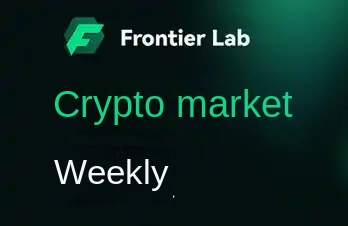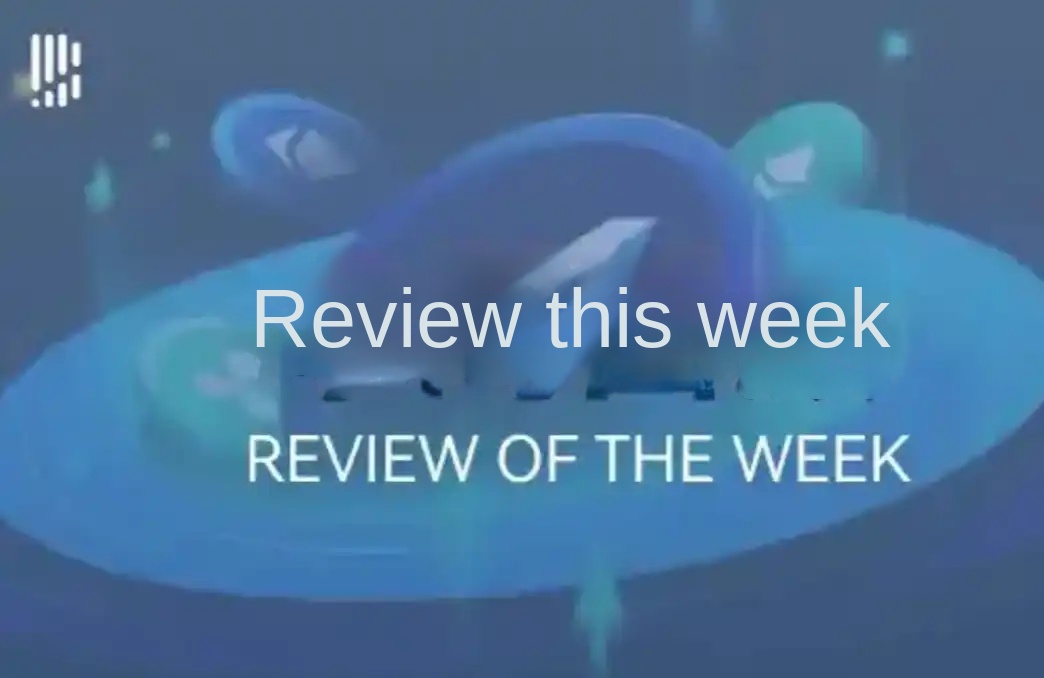Can Fansi from Listen to Earn bring a new direction to Web3 music?
On June 21st, TK Chen, CEO and co-founder of FANSI, a music NFT platform, participated in a dynamic AMA session titled "Listen to Earn: Can Fansi Bring New Directions to Web3 Music?" The session provided a detailed analysis of the current development challenges facing Web3 music platforms, potential solutions, and future market potential.
BlockBeats: Welcome TK Chen, please introduce yourself and Fansi first.
TK Chen: Hi everyone, I'm TK. I'm an experienced serial entrepreneur who has been involved in software startups and venture capital/angel investment services for over 13 years. I'm now diving into Web3 because I've never seen a new industry born with such a friendly and innovative approach. Many big companies are struggling to enter this field, as community building plays a crucial role and the business model is completely different from Web2. At the same time, there are endless opportunities for new startups to explore.
Let me explain FANSI. We are in the Web3 music industry and started by simply issuing music NFTs. Later, we found that the market lacked a player, so we created MetaBoom. We also discovered a common pain point in music NFTs: lack of value and liquidity. Therefore, we developed a token economy. Overall, we are building a new Web3 music industry ecosystem. The conclusion is: entrepreneurship is tough.
BlockBeats: It does seem so, moving forward amidst constant change. Earlier, you mentioned the market lacking a player, but we feel that over the past two years, music NFTs have not received the same attention as PFP NFTs. In Fansi's opinion, what is the main reason for this?
TK Chen: The main reason is an extension of what was just discussed: NFT or Web3 music is still an early market and application, so most music NFT platforms tend to lean towards an e-commerce model, just like selling singles, focusing on supporting the concept of singers and buying songs, and ending after the sale; whereas the expectations of collectors and the essence of Web3 -> ownership and transactional nature are not very obvious in music NFTs. Whether or not you can listen to a song is a Web2 play, not the ownership and transactional (or circulation) nature of Web3. These two points are very obvious in the PFP mode of NFTs and are therefore very popular, but fundamentally difficult to replicate in music itself and not suitable for the music industry, so people may not understand it. And this is the problem we need to solve.
BlockBeats: Although the market is just getting started, we have seen some teams starting businesses in this field before, such as Sound.xyz, Spinamp, Ooh Lala, etc. What makes MetaBoom different from these products? MetaBoom introduction: https://www.theblockbeats.info/news/42841
TK Chen: Good question. Actually, everyone is very outstanding. The Web3 music ecosystem needs everyone to participate together to succeed. Sound.xyz is currently a distribution platform, focusing on the supply side, and the key is to find a bunch of music distribution and sales, which is the e-commerce model I mentioned earlier. Spinamp and Ooh Lala focus on aggregation, using programs to crawl songs from different platforms for everyone to listen to. Essentially, it has even less direct relationship with Web3.
MetaBoom is building a Web3 music ecosystem that aims to turn everyone, whether they are holders, users, or simply listeners, into roles similar to record companies and streaming services. Through MetaBoom's token economy design, you will be encouraged to create your own playlists, own the musician's music NFT, and share songs. Just like Proof of Work, which rewards accounting on Bitcoin or Ethereum, the Web3 music ecosystem can obtain Token Rewards by owning music NFTs and promoting them, even listening to songs can earn rewards. In Web2, we have to pay to listen to music, but in Web3, we can earn tokens by listening to music. So basically, we are connecting different roles together, allowing different services to help each other. Through a good token economy design, we are cross-platform and cross-chain. Music NFTs purchased on platforms such as Sound/Catalog/OpenSea can participate in this ecosystem's gameplay, not limited to our own music NFTs.
BlockBeats: As a newcomer in the industry or startup field, one common challenge is the lack of users in the initial stage. Although the competition may not be fierce, the market may be niche. How do you and your team view this issue and plan to address it?
TK Chen: This is really a headache for every entrepreneur. However, let me tell you an interesting fact: I have seen a statistic that says the users and potential consumers of the global music industry are about 7 billion people. That's almost the entire population of the earth! So, even if it is considered niche, it can still be considered not niche. However, in the Web3 world, because the industry is still under construction, everyone is still unsure about how to do Web3 music. Many project parties are still exploring, including us. In terms of music distribution, which is the supply side, it is not a problem. Musicians actually have a high acceptance and understanding of the benefits of issuing NFTs. However, the problem lies with collectors. Most project parties have ignored the need to solve the problem for collectors. Only a few have started to try, such as Sound, which has done Sound Swap, hoping to increase liquidity.
Our approach is to emphasize ownership and liquidity through Listen 2 Earn, Audio proof of work, or RecordDAO. By owning music NFTs and MetaBoom, one can become a MetaDJ and turn their music into an asset with passive Token Rewards. The more people listen to your songs, the more Tokens you can earn. Additionally, as the playlist accumulates more listening history, more people will listen, increasing the value of the asset and making it more tradable. This approach also helps more musicians grow by promoting their music through purchases and promotion. Listen 2 Earn is designed around these principles.
BlockBeats: So does the design of Metaboom itself provide a motivation for musicians to promote themselves?
TK Chen: As more and more collectors benefit from the design of this ecosystem, they become more accepting of the purchase and trade of music NFTs, which helps musicians expand their popularity and enables them to release music through web3. This should motivate holders to promote their music, just as holders of Bored Ape Yacht Club promote their apes. However, in the case of music NFTs, the lack of a play-to-earn mechanism like PFPs means that holders may not be motivated enough. Simply relying on the flip of the NFT itself won't work, so a new tokenomics model is needed to strengthen this area. In summary, this design solves niche problems rather than simply selling songs.
BlockBeats: Since we're talking about economic models, let's start by discussing this part. What are the differences between Metaboom's Tokenomics design and the current mainstream Play 2 Earn? How did you think about maintaining the value and price of MMU Token when designing?
TK Chen: In fact, Web3 is essentially X to Earn and is part of the ecosystem. Encouraging the community to do something beneficial for a larger group through token reward mechanisms. BTC/ETH mining is accounting to earn, and the negative voice of P2E is mainly because many project parties do not have a business model when designing, and they focus on post-gold to supplement the front gold, which is a fund disk. Therefore, the key is whether there is a good token economic design. We believe that there are several points: first, there must be a revenue model, not just faith; second, it must focus on value transmission rather than token transmission; third, there must be a token, and I think the token recycling mechanism is also very important. For example, in GameFi, the key is that the game must be fun, so that everyone will want to use the earned tokens to upgrade equipment or enhance skills, rather than just dumping them when they don't know what to do with the tokens.
So our company has actually been around for almost three years, focusing on laying the foundation, optimizing our business model, and building a healthy community, rather than launching a coin and then building a product. We have been involved in music distribution, which generates revenue, and we have also synchronized with the release of MetaBoom. In addition, we have put a lot of effort into ensuring that there are enough incentives for recycling, so that tokens have good consumption channels. We have been emphasizing how to help musicians with the help of the audience and holders, thereby delivering value back to the holders. Without tokens, users cannot immediately become contributors to the Web3 music industry, so we must issue coins to complete this task. For more details, please refer to our white paper: https://metaboom.gitbook.io/metaboom-whitepaper/
BlockBeats: For the X To Earn model, token empowerment and sustainable development are issues that many project parties are thinking about. It is particularly important to make tokens valuable. So how does MetaBoom integrate GameFi and SocialFi elements into users' music experience?
TK Chen: Internally, we don't think we need to go the Web3 Spotify route. Our positioning is more like Web3 Steam, except that it's not games but music on top. Therefore, when designing the entire user journey and interaction, we tend to think from a social perspective. For example, tokens have many uses, such as allowing you to be recognized/verified as a professional listener, a person with music taste, a talented talent scout, a super fan, etc. It can be imagined that many music lovers can become an identity certification through these behaviors that they already love. Youtube has cultivated many talented YouTubers, and we may also produce talented Web3 musicians and music enthusiasts. In addition to this, there are also mechanisms like Stake to Promote that allow music enthusiasts to improve the ranking or visibility of musicians, rather than purposeful centralized streaming rankings. Another exciting thing that is still in progress is cooperation with Metaverse, but I can't reveal too much about this yet. In short, because of the relationship between ownership and on-chain data, listening to music and holding music will generate many different ways of playing.
BlockBeats: Regarding the design of Token and market considerations, the team has a mature and planned approach. What are the short-term and long-term milestones included in MetaBoom's roadmap? Can you give us a brief introduction?
TK Chen: In the short term (the next one or two months), we will definitely focus on music distribution. There is still room for improvement in terms of distribution methods, contract terms, and how to make it easier for the general public to participate...etc. At the same time, we will continue to educate more musicians that NFTs are not just for speculation, but a better way. However, our plan for the second half of this year to early next year is to implement the Listen 2 Earn mechanism, which will allow the music NFTs in your hands to generate value. We hope to make more musicians understand this. Our recent release is a new way of AI-generated music, and you can see it on our website "Play Monkey": https://www.fansi.me/hatching/project/8?r=v6f80m. This is a collaboration with a well-known music producer. We hope that in the future, each minted song will be unique, which will further enhance the Listen 2 Earn effect. When you have a certain version of a song, others can only listen to that version by coming to you, which will have a Token Rewards effect. Therefore, we have been trying new methods to maximize the benefits of token economics.
BlockBeats: Going back to the initial question, the Web2 music market currently has a large base, but Web3 is just getting started. What key elements are missing for music NFTs to reach mass adoption? In Fansi's opinion, how long until the music NFT track explodes?
TK Chen: I think it's like the past couple of days when Blackrock's ETF came in, it brought the whole market back to life. To be honest, I think we still need some participation from traditional big brothers. Speaking of the record industry, our experience is that record companies are very eager for this industry. One of our investors is the boss who believes in music and believes that the music company is the well-known record company of the band Mayday. He invested in us hoping to understand how (Web3 music) can be played. It's just that there are too many market noises and negative news, so record companies hope to wait a little longer until the market is more mature.
For example, the registration and use of Web3 wallets is still a barrier for many new users. Whether it is the entry barrier or the security barrier, it will make many music industry asset holders want to wait a little longer. Therefore, I think if more music-related entities embrace this, it will accelerate mass adoption. However, they will not be the decisive factor. The entry of these entities will be very helpful in accelerating the adoption, but I also believe that this is an inevitable trend, that ultimately musicians will move to Web3, and our Listen 2 Earn hopes to accelerate this step.
BlockBeats: Due to time constraints, we will end our discussion here for today. Thank you very much to TK for patiently answering our questions and exchanging ideas. Looking forward to FANSI and Web3 Music going further together.
Welcome to join the official BlockBeats community:
Telegram Subscription Group: https://t.me/theblockbeats
Telegram Discussion Group: https://t.me/BlockBeats_App
Official Twitter Account: https://twitter.com/BlockBeatsAsia
 Forum
Forum OPRR
OPRR Finance
Finance
 Specials
Specials
 On-chain Eco
On-chain Eco
 Entry
Entry
 Podcasts
Podcasts
 Activities
Activities







